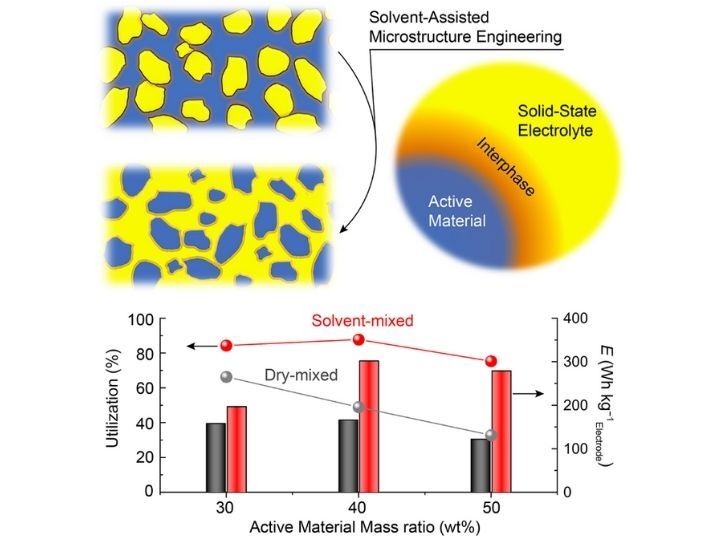While on the face of it, the lithium-batteries that power electric vehicles play an important role in our ongoing shift to sustainable transport, they aren't without environmental problems of their own. Batteries that use organic, readily available materials in place of rare metals are seen as a promising part of the solution to this dilemma, and new research led by University of Houston scientists demonstrates how the performance of these eco-friendly devices might be brought up to speed.
As demand for electronic devices and vehicles continues to grow, so does the reliance on lithium-ion batteries that rely on scarce metals. Front and center of this dilemma is cobalt, the mining of which is not only associated with environmental degradation and pollution of water supplies, but plagued by ethical issues such as the exploitation of child labor. The use of these metals also makes recycling the batteries difficult at the end of their lives.
However, we are seeing some exciting advances being made in the development of batteries that do away with these types of materials and use organic ones instead. These have included organic-based batteries that can break down in acid for recycling, a heavier reliance on cheaper and more environmentally friendly nickel, and even one from IBM that uses materials found in seawater.
The new device marries this organic architecture with another promising branch of battery research focusing on the use of solid-state electrolytes. Typical batteries move their electrical charge between two electrodes, a cathode and anode, in a liquid electrolyte solution, but scientists are making great inroads into alternative designs that use a solid electrolyte instead. This type of architecture could also allow batteries to work with a lithium metal anode, which could store as much as 10 times the energy of current devices.
The scientists behind the new battery have solved what they say is a key limitation of organic-based, solid-state lithium batteries. Where cobalt-based cathodes afford these batteries a high energy density, ones made from organic materials suffer from limited energy density, which the team found to be because of microscopic structures within the cathode.
“Cobalt-based cathodes are often favored because the microstructure is naturally ideal but forming the ideal microstructure in an organic-based solid-state battery is more challenging,” says study author Jibo Zhang.

Working with a cathode made from an organic material called pyrene-4,5,9,10-tetraone (PTO), the scientists used ethanol as a solvent to alter its microstructure. This treatment resulted in a new arrangement that allowed for better transport of ions within the cathode and boosted its energy density to 302 Wh/kg, which the team says is 83 percent higher than current state-of-the-art solid-state batteries with organic cathodes.
“We are developing low-cost, earth-abundant, cobalt-free organic-based cathode materials for a solid-state battery that will no longer require scarce transition metals found in mines,” says Yao. “This research is a step forward in increasing EV battery energy density using this more sustainable alternative.”
The research was published in the journal Joule.
Source: University of Houston





